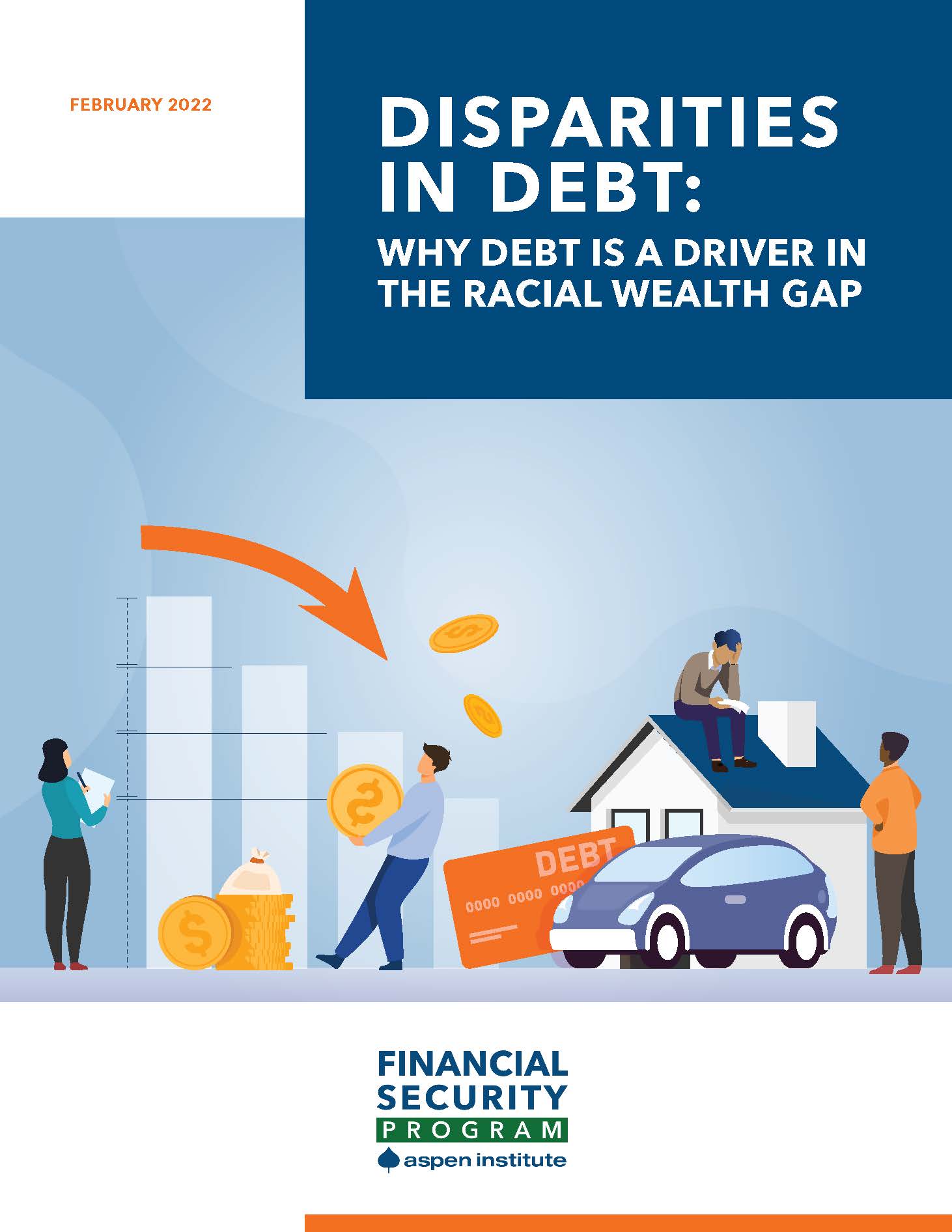Racial wealth inequality has been pervasive in the United States from the earliest days of colonization 400 years ago. Despite Constitutional guarantees of equality and numerous anti-discrimination laws, racial wealth gaps not only remain but some are growing. Scholars, policymakers, and others have deeply investigated the historical roots and current drivers of racial wealth inequality in the United States. Most analyses focus on total asset holdings, intergenerational transfers, or disparities in specific assets (such as home equity). Media coverage and social narratives about racial wealth gaps similarly tend to concentrate on assets.
Less attention has been paid to the other side of the household balance sheet: debt. Although there has been analysis of racial disparities in mortgages, and recent research has illuminated the role of student loans in widening the wealth gap between Black and white households, debt remains under-appreciated as a driver of racial wealth gaps.
This brief explores the links between racial disparities in debt and those in wealth. It is informed by traditional research and by Aspen FSP’s years of engagement with consumers and families about their financial challenges. It reflects findings from a literature review, interviews with experts from the academic and private sectors, analysis of federal survey data, and focus groups and consumer surveys. We believe that fully understanding the impact of debt on people’s lives requires a multidisciplinary approach that includes systematically seeking input from and listening to people who struggle financially.
The growth in racial wealth inequality makes it imperative that policymakers, business leaders, and nonprofit and philanthropic institutions invest in strategies that increase wealth accumulation among those with the least and reduce racial disparities across every dimension of personal net worth. This brief provides a resource for leaders across sectors to understand more deeply the interactions between racial disparities in debt and racial gaps in wealth and the ways in which redressing the racial wealth gap requires addressing racial debt disparities.
Share on Twitter



